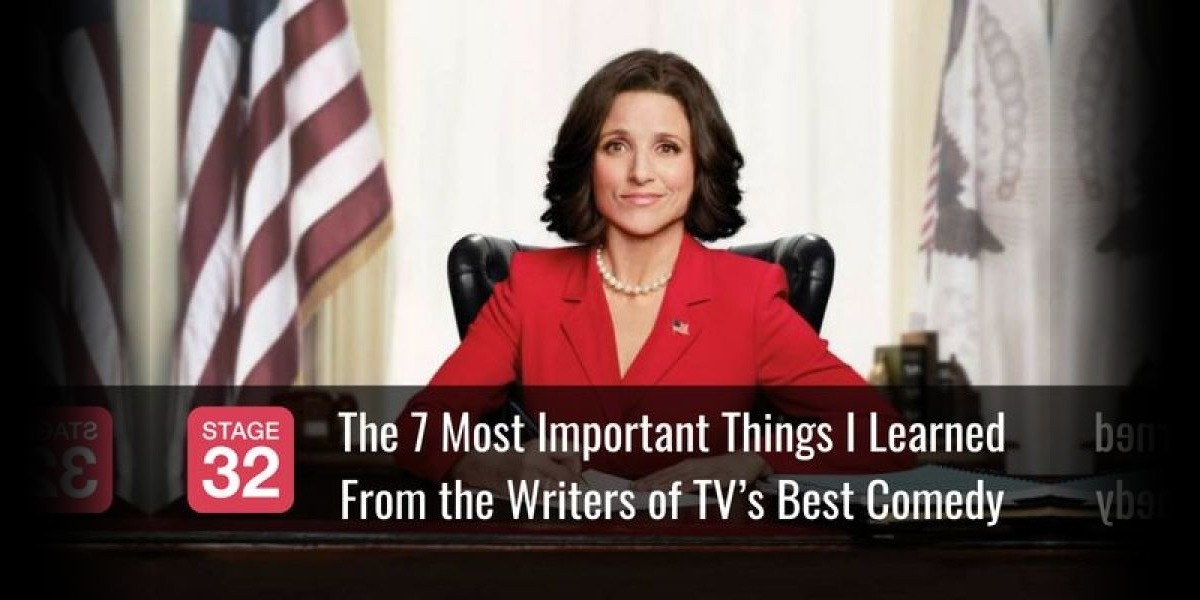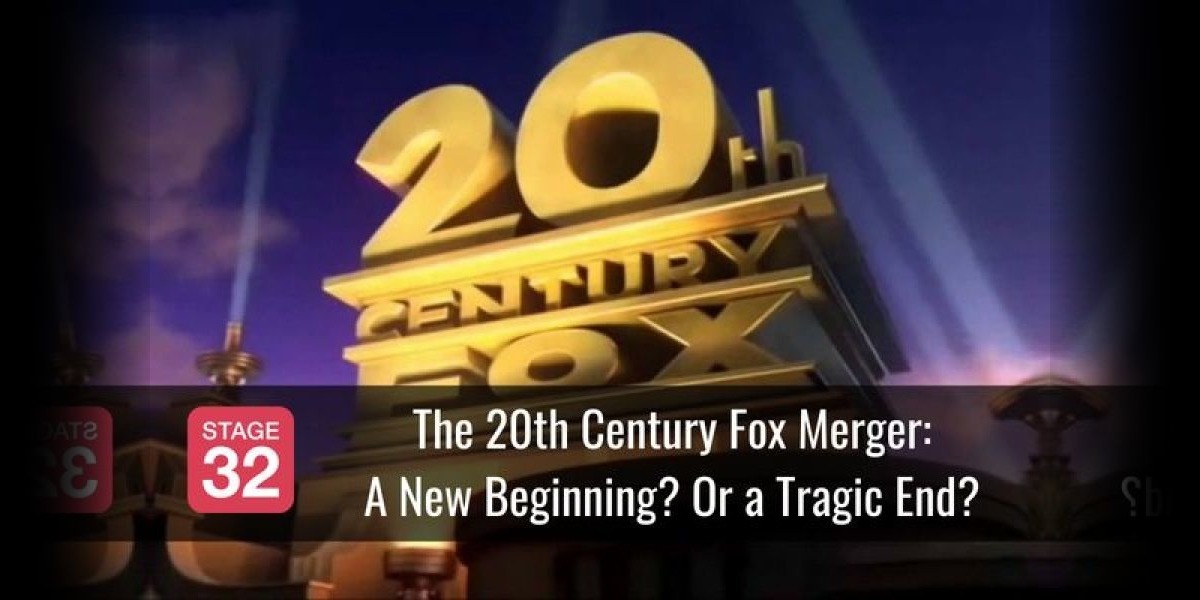The Importance of an Online Presence (AKA How Not to Be a D*ck Online)
One of the questions that comes up time and time again for screenwriters is – Do you have to live in LA to have a career?
Nope.

Obviously, it makes life a lot easier if you live in a creative hub like LA or London or New York, but the world’s a big place and there are artists EVERYWHERE. You can live where you like, but the real truth of the matter is that at some point in your career (if you want a career rather than a hobby), you will need to network with the kind of people who can actually get your work made – whether it’s for TV or the movie theatre.
The good news is it’s now possible to network with these people from the comfort (and cheaper living costs) of your own home. The Internet means you can talk to someone on the other side of the world, time differences not withstanding, at the click of a mouse.
But to do this you need an online presence. And there are so many ways to screw this up or just not make the most of it.
The other good news is you’re reading this post and are already part of a massive, friendly, and hugely supportive network of fellow creatives – Stage 32 (and arguably the most active screenwriting forum online!) You should be active here as much as possible, but here are some other ideas to explore as well.
Here are three ways you can make the Internet and an online presence work for your career:

1) Use Social Media
No surprises here. Facebook and Twitter are used by thousands (probably millions) of creatives at every stage of their careers. You can talk to Hollywood movie stars and directors, independent film producers, and other lowly writers still struggling to get an agent. All of these lovely people can be helpful to you in different ways.
Hollywood Movie Stars: There are LOADS of them on Twitter and ok, they’re not going to respond well to you spamming them with requests for them to read your script, but it’s a quick, easy, and fun way to keep an eye on the industry. A lot of them post on-set photos and talk about upcoming projects, all of which are useful to screenwriters. If Chris Hemsworth is already shooting a crime thriller set in Berlin about an ex-Iraqi war vet who’s out for revenge on the gang boss who killed his goldfish, then there’s no point in you writing another one. We writers need to have some idea of what’s selling, what’s been done to death, and what no producer will touch with a ten-foot pole.
 Hollywood movie stars are unlikely to respond favourably to spam…
Hollywood movie stars are unlikely to respond favourably to spam…
Other Writers: Many writers have accountability groups, or retweet each other’s loglines and projects, all of which help keep you motivated. It’s also good to know that you’re not the only one who’s having trouble with the midpoint and why your main character does that mad thing in the middle of Act 3.
Support other writers, offer advice if you can, and when you need help or just someone to cheer you on towards FADE OUT, they’ll be there – your tribe. Writing is a lonely business at the best of times, and at the worst of times you’ll just want to give up. I belong to several writers’ groups on Facebook (my favourite one, which truly encompasses everyone from complete newbies to seasoned TV professionals, is Bang2Writers) and they have kept me going when I’ve been ready to throw in the towel. They’ve also been the source of a lot of my screenwriting education. Writers are normally happy to pass on information and share tricks of the trade, and a lot of groups will do peer reviews of each other’s work.
Independent Producers: These are the people you are most likely to start your career with, so any chance you get to talk to and build a relationship with them should be grabbed with both hands. ‘Building relationships’ is the key phrase here. Don’t blunder straight in and pitch them your script, but take the time to talk to them, support their projects, and find out what they look for in a script. Film is a collaborative media, so find people you’d like to collaborate with and get to know them. They’ll be looking for collaborators too.
Producers do sometimes post script callouts or competitions on social media, which gives you the opportunity to pitch your project to someone who is actively looking for things to make. (Jordan Peele’s Monkeypaw Productions recently did just that.) This is far more likely to bear fruit than approaching someone cold.
 Jordan Peele’s Monkeypaw Productions recently put out a script call on Twitter.
Jordan Peele’s Monkeypaw Productions recently put out a script call on Twitter.
There are a couple of DOs and DON’Ts of using social media though that you need to be aware of:
DO treat the people you talk to – other writers, producers, directors, actors etc – with respect. That newbie who was so completely clueless, who you berated for not having read Save The Cat and mocked for their crappy logline? The fledgling director whose trailer was so terrible you made a sarcastic comment about them not being able to direct traffic? The film industry is smaller than you might think. People talk.
I read a discussion where a guy, who obviously considered himself a cut above the others in the group, laid into a very experienced script consultant and a seasoned TV writer and consequently got completely schooled by both. Word got round about this guy and now – surprise surprise – very few people take him seriously. It’s entirely possible to disagree with other people POLITELY and without burning your bridges.
DON’T friend or follow someone and in the next breath pester them to read your script. Just – don’t. Most writers are happy to do script swaps, but get to know them first. Apart from anything else, you’ll find that some writers give better feedback than others and you can often tell that by the way someone posts in group discussions.
There are others of course, but most of them really boil down to these four words: DON’T BE A DICK.
2) Visit Industry Websites
This encompasses all sorts of websites. You can read about all things Hollywood on the likes of Variety and Deadline, and all things indie on IndieWire; follow numerous successful screenwriters’ blogs like John August (Corpse Bride and Big Fish) and Scott Myers’ Go Into The Story, both of which have a wealth of advice and how-to’s for screenwriters of all levels.
Then there are script hosting sites where you can post your script (for a fee) and receive feedback from writers and producers, many of whom are looking for new projects. And of course Stage 32, where you can pitch to executives!
There are thousands of script consultants, script readers, script editors, all blogging away out there in cyber space and yes, of course some are better than others – but they all offer advice and, when your script is ready and needs a professional eye over it, you’ll know where to turn.

These websites are an amazing resource for cash-strapped writers who know they don’t know everything, but can’t afford to do an MA in Creative Writing. I’ve never done a writing course, and I’ve read very few screenwriting books, but I’ve learned HEAPS from the Internet. And before you dismiss this, remember that the majority of these bloggers HAVE read every screenwriting missive ever written or HAVE done degrees and Masters and postgrads at UCLA, among others. (Some of them also teach it in real life, not just online). If you’re not at least familiar with some of these sites you are missing out.
So let’s say you’ve used all these fabulous resources, written an amazing script, connected with filmmakers and writers and producers on social media…where are they going to find your masterpiece?
3) Your Own Website
Yes! You should have a website if you’re serious about a career. Think of it as your shop window. It doesn’t have to be fancy but it MUST be proofread. It’s not quite as easy as ‘if you write it, they will come,’ but if people DO want to find you, a website will make that possible.
A lot of people have blogs but to be honest, with so many out there, you may not find it’s worth the bother - it’s hard to get regular readers. That’s not really what your website should be about (although it’s worth doing the odd blog post just to keep it looking current and fresh).
It should be about your work; what you’ve done, what you’re doing, what scripts or ideas are available. I’m not talking about putting your whole script online, but a summary and a logline, with an image that sums up the tone of the story, can really hook people in. I’ve even got a couple of trailers on my website made on Adobe Spark, which is really easy to use and looks great.
Don’t get precious about people stealing your ideas; it really doesn’t happen as often as you might suspect, because, quite frankly, if a producer likes your idea it’s much easier for them to just buy your script off you than try and write it themselves or pay someone else to write it. If you are worried about it you can always register your screenplay for copyright.
And please, PLEASE invest in a domain name, and make it a sensible one. You can get free websites through companies like Wix, but if you use the subdomain name they give you it will:
1) be a bit weird and
2) won’t be one that’s easy to find on Google.

Not investing in a domain name just marks you as someone who’s not confident enough in their abilities to invest a few bucks on a website. Use your own name, if possible. You want people who see you talking about screenwriting on Twitter or Facebook, to go off and look you up and see that you really ARE as brilliant and witty as you seem on social media.
The other good thing about a website is that you can use it to advertise other (writing related) things at the same time. I set up my website for my screenplays, but I’m also using it to advertise my debut novel (along with a link to buy it!) and my proofreading/script editing services.
Unconvinced? Okay, so let me tell you a true story.
I am all over social media like a rash (albeit a benign, non-itchy one). I follow lots of other writers. We talk on Facebook on a daily basis, we share script call outs and competitions, and we generally act as each other’s cheerleaders. One day on Twitter, a writer based in the US (I’m in the UK) announced that if we cared to post our loglines or project details on his thread, he would retweet them. He has a lot of industry followers, so his tweets reach a lot of people.
I posted the logline to one of my screenplays, a romcom set in London. He retweeted it.
His tweet was seen by a British guy in LA, a fledgling producer who works at a production company and is a student on the UCLA Producers course. He loved my logline. He looked at my Twitter profile, which includes my website address.

He looked at my website, found the logline, clicked on the link that took him to an outline, which he read and loved. He emailed me through the contact form on the website, introduced himself, and requested the script. I sent it. He loved it.
In March he optioned the script for 18 months. I even got paid, which was nice, and it more than covered the money I spent on a domain name and web-hosting. So far he’s pitched it to a couple of big companies, but as his course continues he’ll get more and more opportunities to talk about it to people I couldn’t have hoped to meet face to face myself. So who knows where it will end up? I might just get the film rights back in 18 months, or it might be in the hands of a Hollywood studio. Either way, it all started on Twitter.

There are so many networking opportunities out there in cyber space for writers. Maybe you live in LA and you regularly bump into Steven Spielberg at the dog-grooming parlour. Maybe you and Kathleen Kennedy get your bikini-lines waxed at the same beauty salon. Or maybe you chat with Jason Blume over the organic tofu at Whole Foods on West 3rd.
But, if like me, you live in an ordinary suburban town far away from the bright lights, you’ll want to take advantage of the many opportunities the world wide writers’ web has to offer. You’d be bonkers not to.

Fiona Leitch is a screenwriter and novelist living on the south coast of England.
She aspires to write like the lovechild of Nora Ephron and Richard Curtis and enjoys
freaking out her cats by trying out dialogue on them. Her debut novel ‘Dead in Venice’
is out in audio book form on 6th September, available to order now exclusively from
Audible.com. More information can be found at www.fionaleitch.com
Like this blog post? Please share it on social media (Facebook, Twitter, LinkedIn, email etc) by using social media buttons at the top of the blog. Or post to your personal blog and anywhere else you feel appropriate. Thank you.
As always, we welcome thoughts and remarks on ANY of the content above in the Comments section below...
| VEEP'S Script Coordinator Talks Comedy: The 7 Most Important Things I Learned From the Writers of TV’s Best Comedy |
| The 20th Century Fox Merger: A New Beginning? Or a Tragic End? |
Search Stage 32 Blog
There are now 3693 blog posts for you to enjoy. Search them all by tags below.
Acting, Advice, Cinematography, Coffee & Content, Composing, Contests, Distribution, Featured, Filmmaking, Financing, Inspirational, Networking, Producing, Screenwriting, Success Stories, Tips, Trending,Relevant Tags
Recommended Articles

Coffee & Content: Global Opportunities Are Increasing!

Happy Holidays from the Stage 32 Team!

Celebrate the November 2024 Stage 32 Community’s Successes

Celebrate the December 2024 Stage 32 Community’s Successes

St. Pete-Clearwater Film Commission Partners with Stage 32!
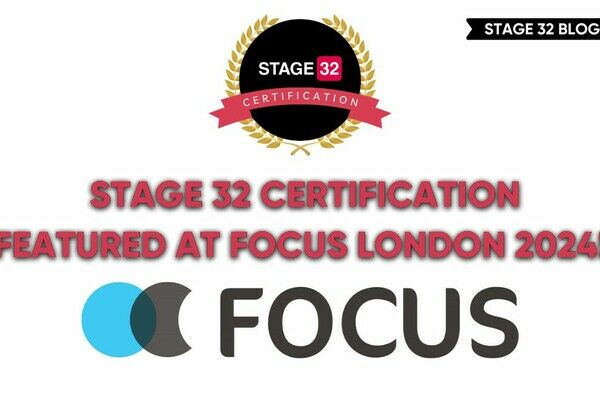
Stage 32 Certification at Focus London 2024!
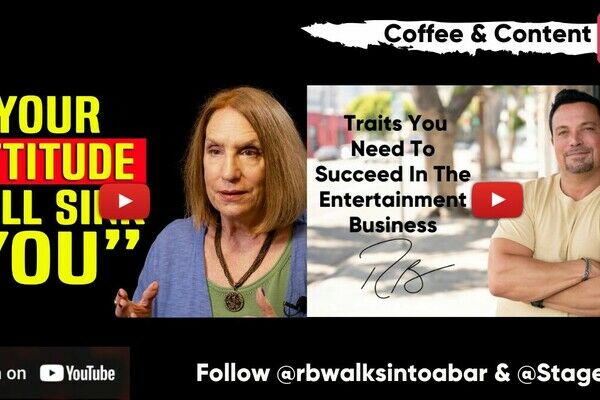
Coffee & Content: Traits You Need To Succeed In The Entertainment Business
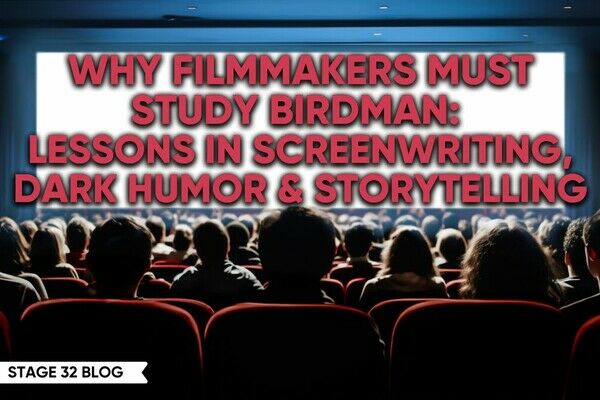
Why Filmmakers Must Study Birdman: Lessons in Screenwriting, Dark Humor, and Storytelling

The Rise & Struggle of Independent Filmmakers: Sustaining Creativity in a Studio-Dominated World



